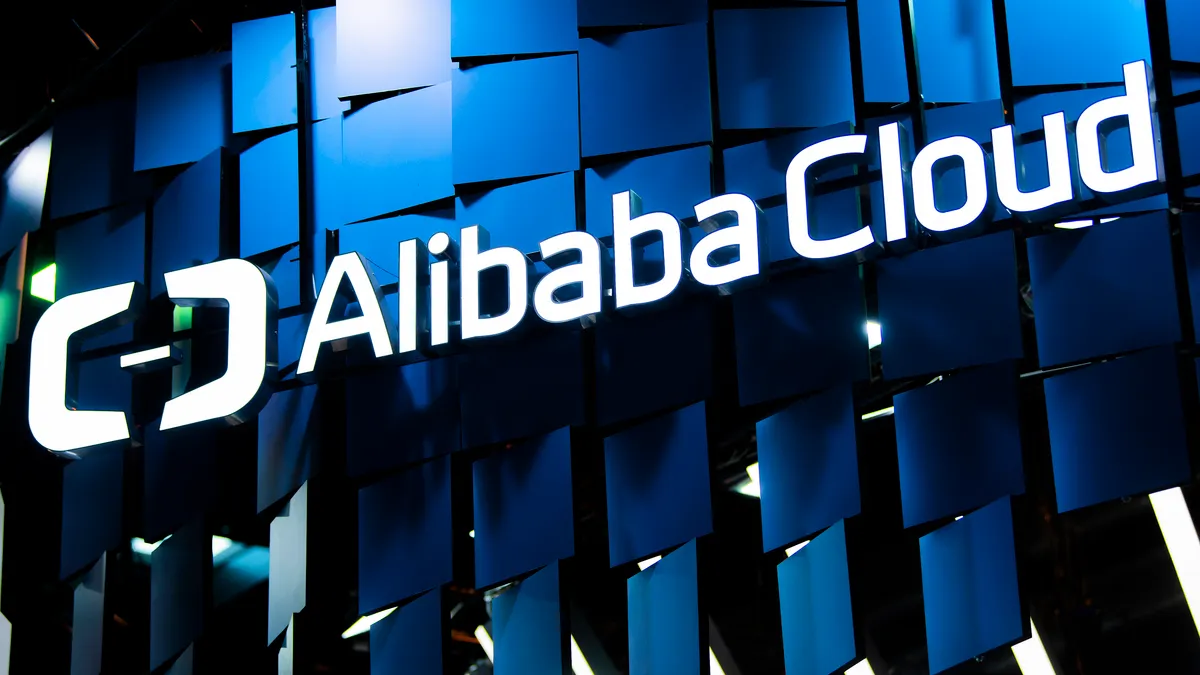Dive Brief:
- Alibaba reduced pricing by up to 59% on several core public cloud services globally, the China-based hyperscaler announced Monday.
- The company cut prices on compute, storage, network and database services, as well as on its analytics products, by an average of 23%. International businesses that opt for pay-as-you-go billing can reduce their elastic compute and block storage bills by up to 30% and 59% respectively, the company said.
- In the fight for global cloud market share, Alibaba remains a relatively minor player. The company’s shrinking portion of the global market fell below 5% last year and was estimated at 4% in Q4 2023 by Synergy Research Group. AWS, Microsoft and Google Cloud captured 31%, 24% and 11% of the $74 billion spent on cloud infrastructure services during the same period.
Dive Insight:
Alibaba faces an uphill battle globally.
Mainland China’s largest hyperscaler has a commanding 39% share of its $9.7 billion domestic public cloud market but has struggled to gain traction in other regions, according to John Dinsdale, chief analyst and research director at Synergy Research Group.
The hyperscaler’s cloud revenue comes almost exclusively from China and the Asia-Pacific region, Dinsdale said in an email.
While Alibaba generates some revenue from customers in Europe, the Middle East and Africa, its U.S. market share is a minuscule 0.1%, Dinsdale said.
Not all is well for Alibaba's business, either.
The company undertook a broad restructuring in early 2023, which broke Alibaba into six divisions, including a cloud business unit.
“Alibaba has been beaten up by the Chinese establishment and its cloud operations have borne the brunt of a lot of that,” said Dinsdale. “In a market that has been growing rapidly, its cloud revenues have been stagnant.”
While the company grabbed 39% of the $9.7 billion spent on public cloud in Mainland China during Q4 2023, its revenue growth slowed to 3% year over year, according to IT research firm Canalys.
To recharge its cloud business, Alibaba slashed prices domestically by up to 55% in February. Monday’s announcement expands the discounts and extends the initiative to markets where Alibaba faces stiffer competition and other barriers to growth, Forrester VP and Principal Analyst Charlie Dai told CIO Dive via email.
“Price reduction is always the most effective strategy to bolster growth and fend off competitors in the China market,” Dai said. “However, in the midst of ongoing geopolitical frictions, the road ahead remains challenging.”
U.S. trade policies are one pain point for Alibaba.
Trade restrictions on GPU chips entering China represent a specific threat to Alibaba’s cloud business, Sid Nag, VP analyst at Gartner, said in an email.
“The restrictions placed on Alibaba to get access to chips required for AI computational needs may be impacting the company’s growth, especially in the AI business,” Nag said.
Alibaba’s new pricing strategy goes into effect immediately and applies to both new and existing customers.













